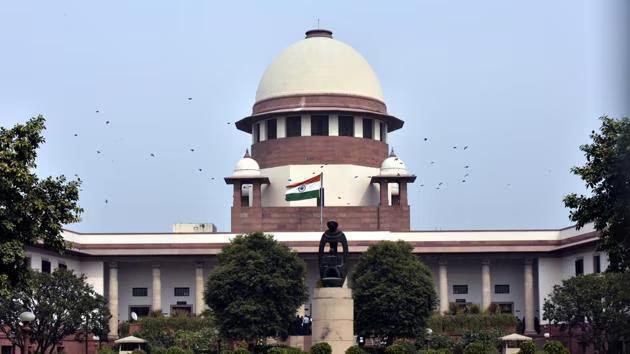
Nothing More Worrisome Than Threatening Supreme Court: Masood
In a recent statement, Congress leader Imran Masood has criticized BJP leader Nishikant Dubey for his remarks targeting the Supreme Court. Dubey had stated that the apex court’s direction to the President to decide on bills within a specific timeframe was “unconstitutional” and “arbitrary”. However, Masood has taken strong exception to Dubey’s statement, calling it a threat to the very institution of the Supreme Court.
According to Masood, the BJP has a long history of making such statements, which they later try to distance themselves from. He believes that the party’s intention is to undermine the authority of the Supreme Court, which is the guardian of the Constitution and the final arbiter of the law.
Masood’s statement has sparked a debate on the role of the judiciary in the country’s political landscape. The Supreme Court has been facing increasing criticism from various quarters, with some arguing that it has overstepped its boundaries and is interfering in the functioning of the executive and the legislative branches of government.
However, others like Masood believe that the Supreme Court’s role is crucial in ensuring that the government remains accountable to the people and that the Constitution is upheld. They argue that the court’s decisions are not arbitrary, but are based on the principles of justice and fairness.
Dubey’s statement has also raised questions about the BJP’s stance on the issue of judicial overreach. The party has been critical of the Supreme Court’s decisions in the past, and some of its leaders have even called for the court to be reformed. However, Dubey’s statement has taken the criticism to a new level, with some arguing that it is an attempt to undermine the court’s authority and independence.
The Supreme Court has been facing increasing pressure from the government and other quarters to reverse its decisions on various issues. The court has been critical of the government’s handling of the economy, and has passed several orders aimed at ensuring that the government takes steps to address the economic crisis.
However, the government has been reluctant to comply with the court’s orders, and has instead chosen to challenge them in court. The Supreme Court has also been critical of the government’s handling of the COVID-19 pandemic, and has passed several orders aimed at ensuring that the government takes steps to protect the health and well-being of citizens.
In the midst of this controversy, Masood’s statement has sparked a debate on the role of the judiciary in the country’s political landscape. The Supreme Court is not only the final arbiter of the law, but also the guardian of the Constitution and the protector of individual rights.
Masood’s statement has also raised questions about the BJP’s commitment to upholding the principles of democracy and the rule of law. The party has been critical of the Supreme Court’s decisions in the past, and some of its leaders have even called for the court to be reformed. However, Dubey’s statement has taken the criticism to a new level, with some arguing that it is an attempt to undermine the court’s authority and independence.
The controversy surrounding Dubey’s statement has also raised questions about the party’s stance on the issue of judicial overreach. The BJP has been critical of the Supreme Court’s decisions in the past, and some of its leaders have even called for the court to be reformed. However, Dubey’s statement has taken the criticism to a new level, with some arguing that it is an attempt to undermine the court’s authority and independence.
In conclusion, Masood’s statement has sparked a debate on the role of the judiciary in the country’s political landscape. The Supreme Court is not only the final arbiter of the law, but also the guardian of the Constitution and the protector of individual rights. The controversy surrounding Dubey’s statement has also raised questions about the BJP’s commitment to upholding the principles of democracy and the rule of law.






